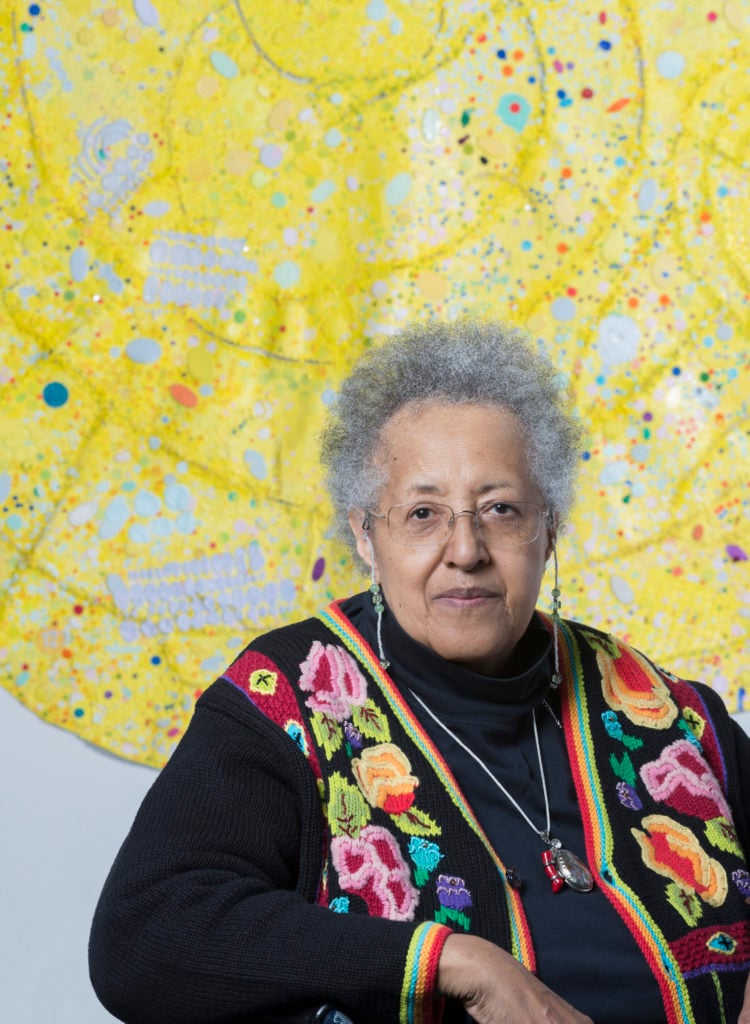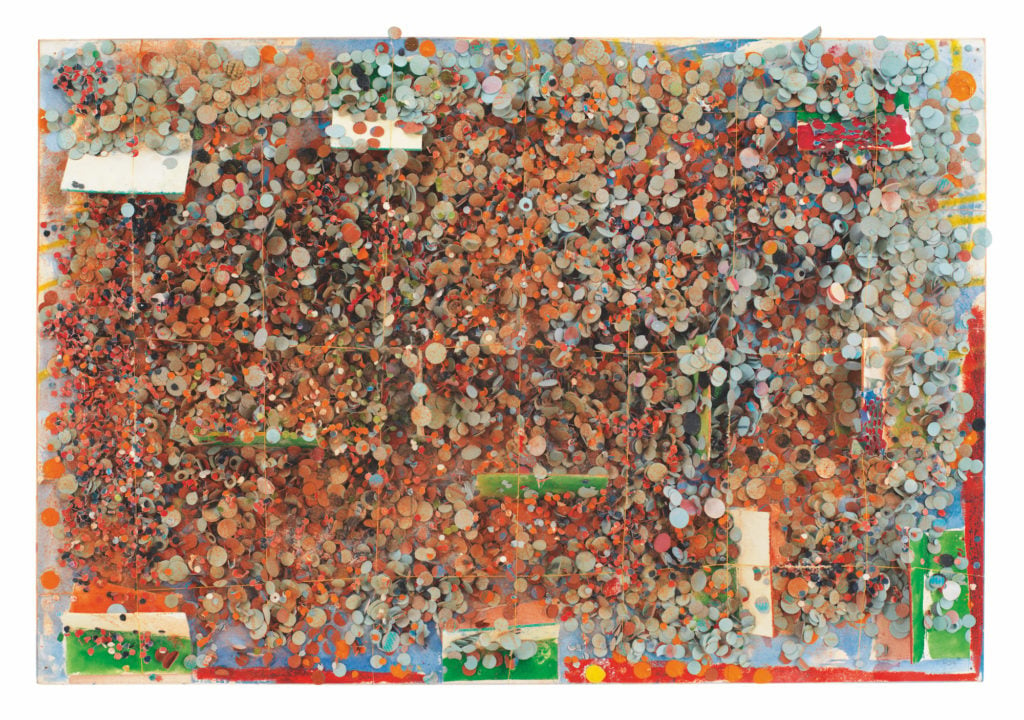Law & Politics
Artist Howardena Pindell Is Suing Her Former Gallery for Allegedly Hiding Sales and Failing to Pay Her for Years
The artist says accounts of sales and inventory provided to her were "willfully misleading and inaccurate."

The artist says accounts of sales and inventory provided to her were "willfully misleading and inaccurate."

Eileen Kinsella

In a complicated and sprawling lawsuit involving years of alleged misdeeds, artist Howardena Pindell is accusing her former gallery, seven of its related entities, and a collector of lying to her about sales of her works, failing to pay her, and refusing to return art upon request.
The lawsuit, which was originally filed in federal court in January and then amended on April 21, alleges “continuous systematic breach” of the parties’ responsibilities towards Pindell. The story was first reported by ARTnews.
According to the lawsuit, dealer George Richard N’Namdi and his son, Jumaane, who showed Pindell’s work between 1987 and 2006, sold works at heavy discounts and “created a maze of legal entities or dissolved legal entities” to obscure transactions.
Pindell says accounts of sales and inventory, if provided at all, were “willfully misleading and inaccurate, payments were not timely if received at all, and the identity of purchasers, as required by law, was not provided.”
In addition, Pindell is accusing collector Arthur Primas of benefitting from the scheme by buying works at discounts without her knowledge or authorization. She is demanding the return of three works from Primas and is also seeking at least $500,000 in damages.

Howardena Pindell, Untitled #84 (1977). Photo courtesy the artist and Garth Greenan Gallery, New York.
Neither the attorneys for the N’Namdis nor Primas responded to Artnet News’s request for comment. Pindell’s attorney also did not respond to queries.
The claim provides considerable details about six Pindell works ranging in price from $35,000 to $250,000 that were sold to a Brooklyn buyer named Ko Smith between 2014 and 2016. The artist alleges she was never informed of these sales, which were made out of the N’Namdi Gallery’s Detroit branch.
Notably, these private-sales prices are significantly higher than Pindell’s existing auction record, which stands at $47,500 for an untitled mixed-media work (circa 1981), which sold at Swann Galleries’ African American Fine Art sale in April 2019, according to the Artnet Price Database.
Tensions apparently culminated in late 2019 when Pindell’s attorney, Barbara Hoffman, issued a list of works the artist wanted returned. A N’Namdi family attorney, Peter Ellis, responded to Hoffman that the demand was unreasonable, according to Pindell’s complaint.
Hoffman responded: “Far from being unreasonable, the evidence indicates that your payments, if any, to Ms. Pindell were sporadic, and that you acted and continued to act in a manner of total disregard of your obligations as a fiduciary to Ms. Pindell.”
The lawsuit also says the dealers “took advantage” of market interest in the work of African American artists “to the detriment” of Pindell and others. Her claim cites previous lawsuits against the N’Namdis brought by the estates of Al Loving and Herbert Gentry, which Pindell alleges establish a pattern of “unlawful acts.”
Pindell, who recently joined the roster at London’s Victoria Miro gallery and is represented by Garth Greenan Gallery in New York, has become internationally renown in recent years. In addition to a traveling 2018 retrospective that went to the Museum of Contemporary Art in Chicago, Pindell has been part of major group shows such as “Energy/Experimentation: Black Artists and Abstraction, 1964–1980” at the Studio Museum in Harlem (2006) and “WACK! Art and the Feminist Revolution” at the Museum of Contemporary Art in Los Angeles (2007).